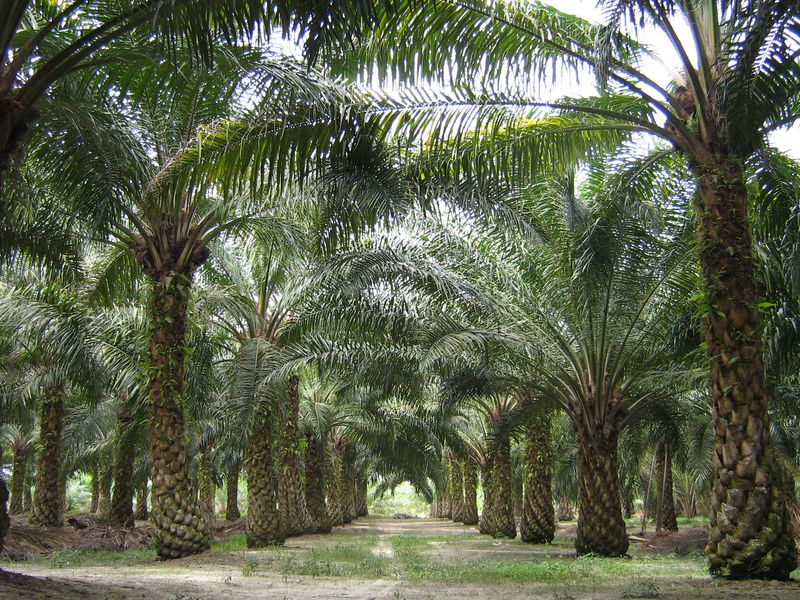Despite difficulties in accessing foreign exchange by palm oil importers, a total of 650,000 metric tons of crude palm oil valued at N132.1billion ($439.1 million) has been imported to meet Nigerian industrial and domestic needs.
The commodity is among the products banned by the Central Bank of Nigeria (CBN) from sourcing forex at the interbank market.
The product was ferried from Indonesia, Thailand and Malaysia between 2017 and August, 2018 as annual consumption reached 2.7 million tons.
It was revealed that despite the 35 per cent duty paid by manufacturing firms and other importers to bring the product into the country, importation of crude palm oil has increased by 50,000 metric tons from 300,000 tons in 2017 because of the 1.73 million tons deficit being experienced in the country.
The imports were 16.7 per cent higher than what obtained last year because of high demand as Thailand palm oil price crashed from $732 per ton to $567 per ton in the first week of October, 2018.
New Telegraph gathered that the country required 2.7 million tons to meet its consumption as local production had remained static at 970,000 tons since 2015.
In July this year, Lagos Port Complex, MV Tina Theresa discharged 5,700 tons at the Apapa Bulk Terminal Limited (ABTL), while MV Champion Cornelia offloaded 4,999 tons at Josepdam in Tincan Island Port.
Also in March 2018, 55,699 tons were imported as Susan Victory and Desert Spring offloaded 45,000 tons of the commodity.
It would be recalled that the Senate had, in February this year, called on the Federal Government to ban the importation of palm oil in order to protect local production.
The lawmakers feared that importation of palm kernel and allied palm products was a threat to government’s campaign on diversification of the economy through increased agricultural production and exports.
Meanwhile, the World Economic Forum (WEF), in its forecast, said that palm oil market would expand to an estimated $88 billion a year by 2022 as Indonesia reduced its export tax for crude palm oil between 0 and 22.5 per cent to attract importers from Nigeria and other countries.
Also, Indonesia has imposed a $50 per metric ton levy on crude palm oil export and a $30 per metric ton levy on processed palm oil products.
Indonesian Vegetable Oil Refiners Association (GIMNI) explained that the growth in export of palm oil and processed palm oil products to major markets would continue because of the country’s long-term target of producing 40 million tons of crude palm oil per year from 2020.
Nigeria, which was the largest producer of palm oil in the world with a market share of 43 per cent in the 1960s, now has a world share of 2.9 per cent, with Indonesia leading with 33 million tons; Malaysia, 19.8 million tons; Thailand, two million tons; Colombia, 1.108 million tons and Nigeria, 970,000 tons.
newtelegraphonline.com




